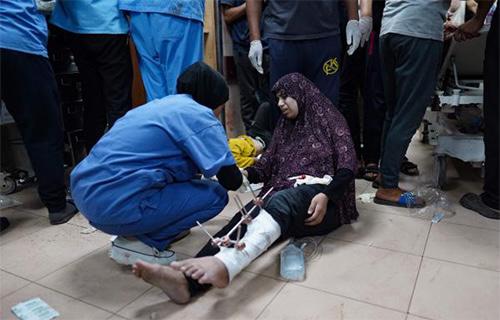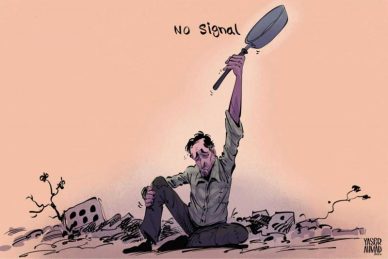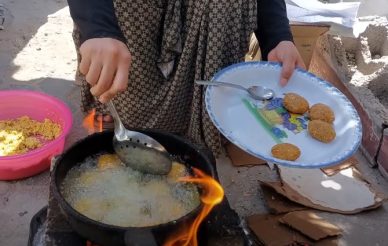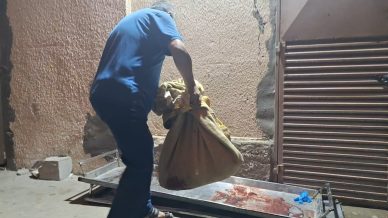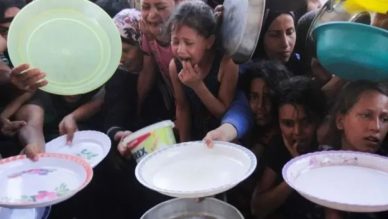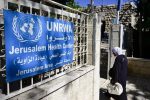By Amna Shabana
Through the ongoing genocide against the Palestinian people in Gaza, the injured, always called survivors, are the ones who suffer the most, as Gaza is unfit for human survival.
How could the injured recover in Gaza? The lack of ambulances and first aid services makes it almost impossible for them to get medical treatment before they succumb to their injury.
Even if they managed to reach to a hospital, they aren’t that lucky. Most of the hospitals are only partially functional while other primary health care services are suspended or inaccessible due to the ongoing attacks.
Under these circumstances, the condition of the injured is further exacerbated for not getting urgent help. In addition to that, living ongoing displacement is the literal meaning of “adding insult to injury”.
On the 9th of August, an Israeli air strike bombed the house of the Palestinian man Rafat Hamada in the Nuseirat refugee camp in the center of the Gaza Strip, killing seven people of the Hamada family and leaving five others injured.
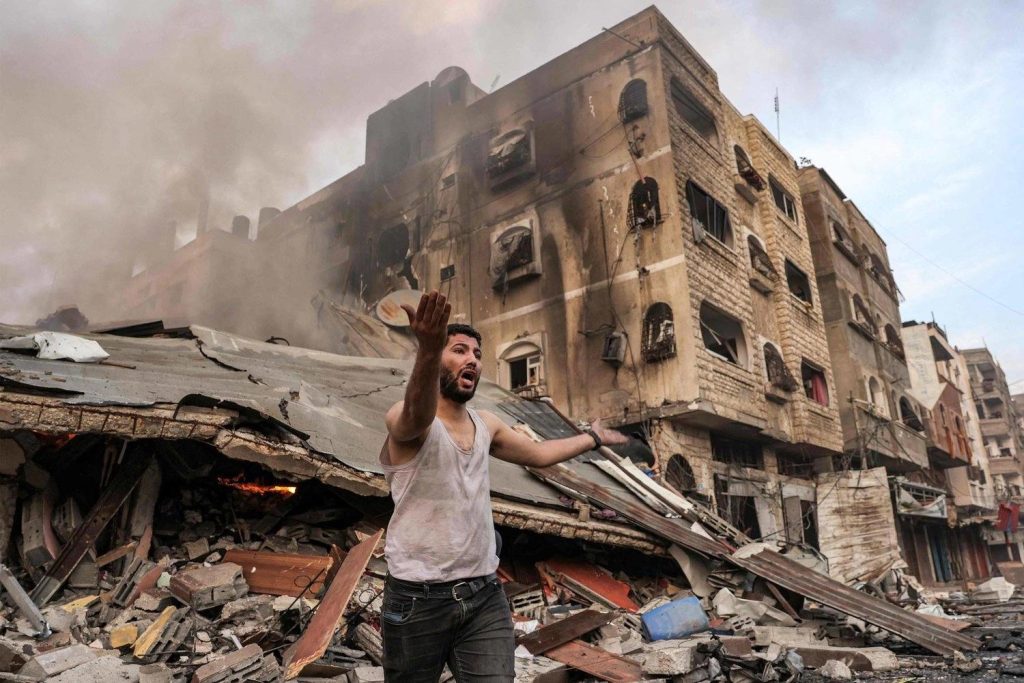
Although Rafat himself survived, his son, Mohammed 32, his brother Ali, 42, his niece Raghad, 18, his sister-in-law, Hiba, 41, his niece, Zaina, 9, and his nephew Diyaa, 17, were martyred.
Meanwhile, Rafat’s father, Ibrahim, 80, his son Ibrahim, 23, his brother Khader, 48, his niece, Samar, 19, and Khader’s daughter in law, Alaa, 29, clung to life, yet with life changing injuries.
Khader Hamada, 48, told us earlier this December that he has been suffering from fractures in the legs following the Israeli bombardment of his brother’s home in the Nuseirat refugee camp where he stayed after forcibly leaving his house in Al Shati’ refugee camp, north of the Strip.
He couldn’t walk for a couple of months after shrapnel penetrated his knees. Afterwards, he used a walker to assist him. Currently, his health condition is stable, yet he can walk very slowly.
Khader lost his wife Hiba and his son Diyaa, but he tried to save the life of his little daughter Zaina who was injured then. Along with his daughter Zaina, he was transferred to Shuhada Al Aqsa hospital in Deir al Balah city, south of the Gaza Strip.
“When I was told my wife was martyred, I looked for my little daughter Zaina. I forgot about my injury and made sure that she was fine. While in the ambulance, she cried that she was cold,” Khader recounted.
The doctors could offer no correct diagnosis about her condition but some said she suffered from internal bleeding (hemorrhaging) in the abdomen.
“She underwent an operation but died before it was completed. I lost my most beloved daughter. I couldn’t save her life,” Khader added.
When talking about his daughter Samar, Khader said that her injury might be considered the slightest, yet she was left with the heaviest responsibilities, one of which is assisting him during his hard times while being injured.
“My daughter Samar was left for hours under the rubble of her uncle’s home, crying for help. She felt a heavy iron door falling on her back and a man standing on it too. She could remember asking that man to rescue her,” Khader pointed out, adding that she is in need of urgent mental health support.
Samar suffered bruises all over her body especially in her legs. Her scars healed nearly quickly. But the wound of losing her mother Hiba, sister Zaina, brother Diyaa won’t. And the experience of being stuck under the rubble will haunt her forever.
In addition, Alaa, Khader’s daughter in law, has been suffering from severe pain in the chest. A big tree fell on her chest and right shoulder following the bombing. She couldn’t move her shoulder until a month had passed. However, she is still suffering from breathing problems.
Moreover, Khader’s father, Ibrahim, 80, was hit with three shrapnel, one in the head, one in the lower jaw, and another near the eye. He also suffered from bruises in the legs. For months, he has been facing serious problems eating, talking, and walking. The shrapnel was removed except the one near the eye. An “urgent” operation was required yet he didn’t manage to undergo any.
Furthermore, Rafat’s son, Ibrahim, 23, suffered fractures in his two legs. He was lucky to undergo bone fixing operations. The operations were performed by stabilizing the bones with external platinum fixation.
For lack of proper treatment, the operations didn’t seem successful. He’s most likely to suffer forever in the besieged enclave. No referral abroad was applied for him, according to family sources.
Ibrahim, the grandfather, Ibrahim, the grandson, Khader, Samar, and Alaa have been injured for four months. This might have been enough to heal had they received proper treatment. But their health barely improved due to the ongoing displacement. Currently, they are displaced in Khan Yunis city.
Since the beginning of the Israeli genocide against the enclave in October last year, 45,912 Palestinians have been martyred. Other 113,494 have been injured, left to face lifelong challenges such as pain, joint stiffness, and psychological trauma, according to the Palestinian central bureau of statistics.
-Amna Shabana is a Gaza-based journalist. She contributed this article to the Palestinian Information Center.

